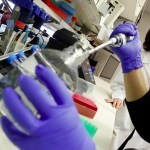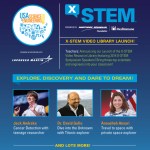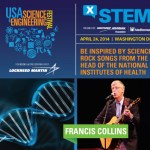NIH
Poor Robert F. Kennedy, Jr. He went from admired environmental activist to reviled antivaccine campaigner so quickly. It began when he outed himself in 2005 with his infamous conspiracy mongering screed about thimerosal in Salon.com and Rolling Stone. Basically, RFK Jr. is a member of what we used to call the mercury militia, a branch of the antivaccine movement that believes, more than anything else, that it is the mercury-containing preservative thimerosal that used to be in several childhood vaccines until 2002 drove an "epidemic" of autism. He's still a member, too, having recently…
John Weeks has long been an activist for alternative medicine—excuse me, “complementary and alternative medicine” (CAM) or, as it’s more commonly referred to these days, “integrative medicine.” Despite his having zero background in scientific research or the design and execution of experiments and clinical trials, for some bizarre reason in May he was appointed editor of the Journal of Alternative and Complementary Medicine (JACM). It didn’t take him long at all to use his new post to launch a nasty broadside against CAM critics in general (such as yours truly) and those who criticized a…
it was less than a year ago that I described a bill wending its way through Congress called the 21st Century Cures Act “old vinegary wine in a new bottle.” The reason I characterized the bill that way was because it really was nothing new and it rested on a very old fallacy, namely that the only way to speed up medical “innovation” is to weaken the FDA and its standards for drug and medical device approval, which is exactly what the 21st Century Cures Act would do if passed into law. It’s basically the American cousin to the British Saatchi Bill, which in essence proposed to do very similar…
The National Institutes of Health (NIH) has long been a key source of funding for medical research, but it wasn’t until 1986 that the agency formally established a policy of including women in clinical research. For decades, women received drugs and therapies that had been tested only on men, even though the same diseases can affect men and women differently, and women may metabolize drugs differently than men do.
In 1993, the NIH Revitalization Act put into law the requirement for women’s inclusion in NIH-funded clinical research. In 2010, the Institute of Medicine reported, “women’s health…
I'm a clinician, but I'm actually also a translational scientist. It's not uncommon for those of us in medicine involved in some combination of basic and clinical research to argue about exactly what that means. The idea is translational science is supposed to be the process of "translating" basic science discoveries into the laboratory into medicine, be it in the form of drugs, treatments, surgical procedures, laboratory tests, diagnostic tests, or anything else that physicians use to diagnose and treat human disease. Trying to straddle the two worlds, to turn discoveries in basic science…
Teachers- the USASEF Team is thrilled to announce the launch of our video resource library featuring presentations from our 2014 X-STEM Symposium! The 2014 X-STEM Extreme STEM Symposium- presented by Northrop Grumman Foundation and MedImmune- featured interactive presentations and workshops by an exclusive group of visionaries who aimed to empower and inspire elementary through high school students about careers in science, technology, engineering and mathematics (STEM). Now, you can bring these STEM Professionals into your classroom with our FREE library of 15-…
On April 24, 2014, an exclusive group of visionaries presented to over 4,000 students at the USA Science & Engineering Festival's inaugural X-STEM Symposium sponsored by Northrop Grumman Foundation and MedImmune. The all day event included interactive presentations and workshops with some of the top scientists and engineers in the country.
Geneticist and Physician Dr. Francis Collins, Director of the National Institutes of Health, captivated crowds with his journey to the NIH.
Watch his presentation below:
http://youtu.be/o214CyMbJ2c?list=PLFxuEWfG5k6F2dH21LFhUCD7jYcLOLm4C
After…
By Larry Bock
Co-Founder of USA Science Science & Engineering Festival
Like many who follow research developments in high technology, I am constantly amazed at the power of science, engineering, technology and mathematics (STEM) to solve real-life problems -- especially problems across diverse venues and disciplines.
Take for example the research of mathematician Lloyd Shapley and economist Alvin Roth, two Americans who shared the 2012 Nobel Prize in Economic Science for their work in market design and matching theory -- a fascinating mathematical framework which…
X-STEM - presented by Northrop Grumman Foundation and MedImmune - is an Extreme STEM symposium for elementary through high school students featuring interactive presentations by an exclusive group of visionaries who aim to empower and inspire kids about careers in science, technology, engineering and mathematics (STEM). These top STEM role models and industry leaders are sure to ignite your students’ curiosity through storytelling and live demonstrations.
Our spotlight on our X-STEM Speakers begins with Geneticist, Physician and Director of the NIH, Dr. Francis Collins.
Raised on a…
For all the worship of "translational" research that is currently in vogue, it needs to be remembered that a robust pipeline of basic science progress upon which to base translational research and clinical trials is absolutely essential if progress in medicine is to continue. Without it, progress in SBM will slow and even grind to a halt. That's why, in the U.S., the National Institutes of Health (NIH) is so critical. The NIH funds large amounts of biomedical research each year, which means that what the NIH will and will not fund can't help but have a profound effect shaping the pipeline of…
The OMB has reported on the effects of sequestration that will be triggered Jan 2013 unless Congress proactively changes the law before then.
Some time ago, Congress set itself a trap: in an attempt to look like they were dealing with government spending and the deficit, they passed a law that triggers automatic cuts to spending, unless Congress agrees and passes laws that make concomitant targeted cuts or revenue increases to decrease the deficit.
The nominal cuts are about $1.2 trillion, over a decade, cut from the projected budget in the out years, and are, by design flat across-the-board…
Somebody please tell me why the national library of medicine gave up their pubmed.com and pubmed.org domains? It used to be you could just type "pubmed.org" and get pubmed. Now, some cyber squatter has put some worthless spam search on the site. Before I realized it wasn't a site redesign my search got me redirected to a celebrity gossip site, then experimenting with the same search I got a site selling anti-aging cream.
Really? How much does it cost to keep a domain a year? And for that matter, what cyber squatter thinks redirecting scientists at celebrity gossip sites is a great…
The National Institutes of Health (NIH), the world's foremost biomedical research center and the U.S. federal government's focal point for such research, is returning to the Festival as a major Sponsor and Exhibitor, bringing with it a bevy of high-caliber excitement in medical science that helped attract scores of visitors to last year's finale Expo.
"After participating in 2010, there was really no question about our desire to return to the Festival," says Bruce Fuchs, Ph.D., Director, NIH Office of Science Education. "We got the chance last year to introduce some exciting new ways to…
One of the points about science funding I've tried to make over the years (we have been blogging a long time, haven't we?) is that the overheads and indirect costs associated with federal grants drive a lot of university decisions--there's a lot of money there. But this funding also has significant macroeconomic effects, especially in research-heavy states like Massachusetts. A local paper, The Boston Courant, describes the effects of the coming NIH cuts, due to the ending of the ARRA and the coming budget cuts, to the Boston economy. I'm quoting extensively from the August 12, 2001…
This is why all the concern about the fake crisis of the U.S. budget deficit is so harmful--it has real effects on people's lives, including scientists:
Both Republican and Democratic proposals would cut more than US$1 trillion in spending over a decade, amounting to a budget reduction of at least $100 billion per year. Nature examines how this might affect the scientific community....
Republicans have made it clear that they will not cut defence spending, and Democrats are keen to protect social security and health-care programmes such as Medicare and Medicaid. Thus, the cuts are likely to…
The Wall Street Journal reports an estimate of the economic impact of the Human Genome Project (italics mine):
Of the $3.8 billion federal funding for the human-genome project, $2.8 billion originated at the U.S. National Institutes of Health, and the rest at the Department of Energy.
That $3.8 billion, along with subsequent capital provided by the government and the private sector, generated a total return of roughly $49 billion in direct and indirect federal tax revenues over the last two decades or so. (The $3.8 billion is worth about $5.6 billion in constant 2010 dollars.)
Over the same…
By way of DrugMonkey, we come across NIH's new working group that "will examine the future of the biomedical research workforce in the United States." It's headed by Princeton's Shirley Tilghman, who in a recent interview, said:
At the root of the problem is the fact that we are overproducing Ph.D.s. As a consequence, there are too many people chasing too few jobs and too few grant dollars. This problem will only get worse in the next decade, given the current federal budget.
I believe there could be changes made to the structure of the typical biomedical research laboratory. The typical lab…
I've written before about the problem of the Ph.D. glut, so I was pleasantly surprised (shocked, actually) to read several articles in a recent edition of Nature hitting the same themes. For those who don't think there's a Ph.D. glut, here are some data for you:
Post-doc numbers shouldn't be increasing, unless there's a glut. While Nature accurately identifies the problem, they fall short in explaining what's driving it. But I'm getting ahead of myself. Cyranoski et alia:
The proportion of people with science PhDs who get tenured academic positions in the sciences has been dropping…
Comrade Physioprof raises a point I've always wondered about:
...this old saw has been brandished:
Innovation is, and always was, higher in smaller/younger labs[.]
There is never any fucken evidence marshalled in support of this claim.
I'll admit that smaller labs can be quick and nimble, especially in comparison to large research centers. On the other hand, larger groups often have the infrastructure and financial security to pursue high risk ideas without serious risk of being derailed.
Data would be nice. I would like to think that, were it available, someone would have cited it by now.…
As long as NIH doesn't end the R2D2 funding mechanism, we'll be fine. The C3PO mechanism was always a joke, however.
I'm hoping the concept that even a stopped clock is right twice a day is operative here:
Former House Speaker Newt Gingrich (R-Ga.) denounced on Thursday a Republican proposal to cut National Institutes of Health (NIH) funding in their long-term 2011 budget.
The House GOP budget approved in February would slash $1 billion from the $31 billion NIH budget. The White House is seeking an additional $1 billion in 2012.
"I would plead with Republicans in the House not to cut the NIH…






